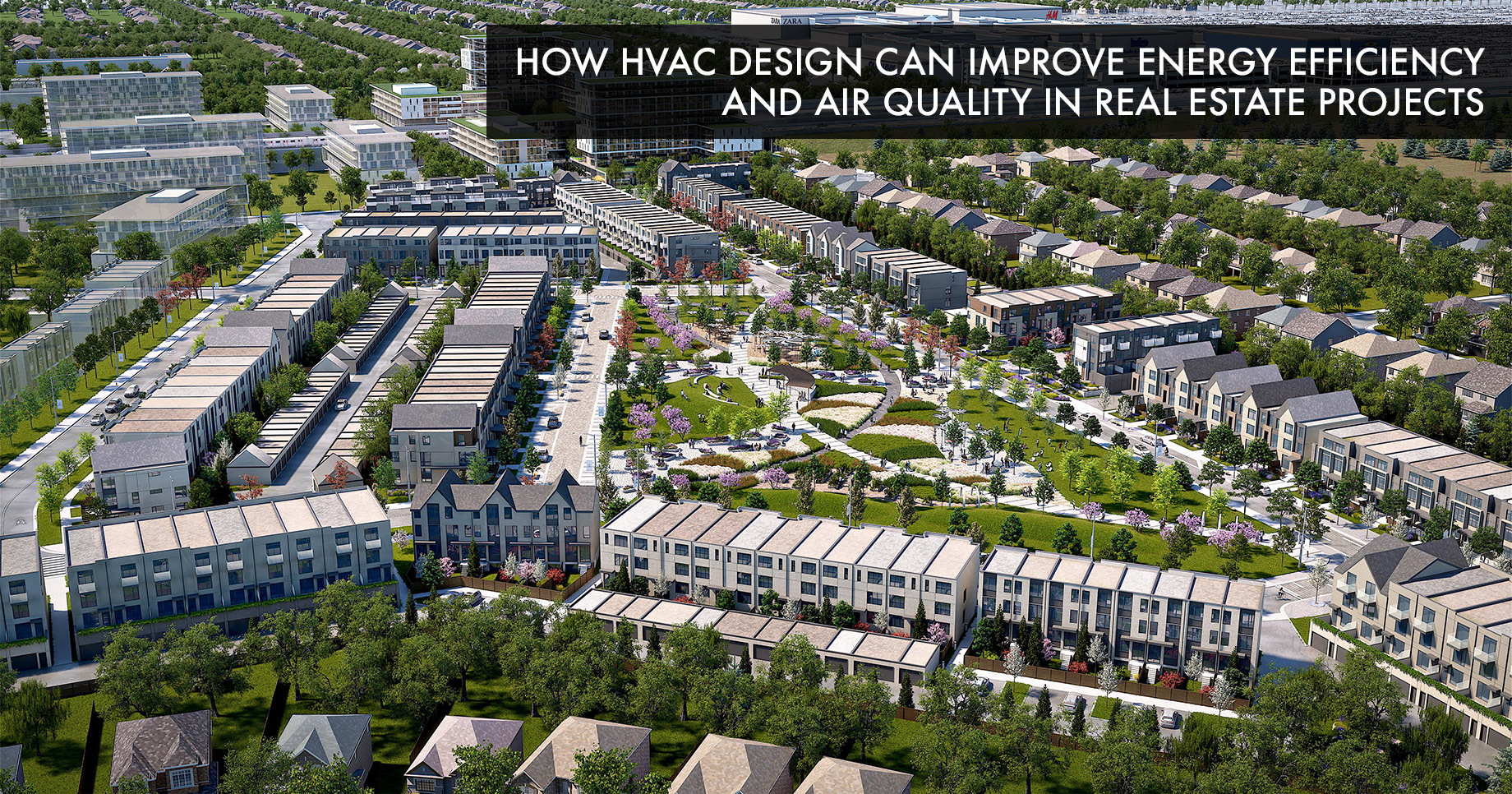
Unique design features are a hallmark of high-end properties, but a suitable indoor environment is also very important. The building should be capable of conserving an adequate temperature and humidity, regardless of weather conditions. Providing enough ventilation is also important, since indoor air accumulates harmful substances over time. All these functions are covered by HVAC systems – heating, ventilation and air conditioning.
In many residential and commercial buildings, HVAC installations represent over 50% of energy consumption. Therefore, an energy efficient design can save thousands of dollars over time. Ideally, HVAC systems should conserve a healthy and comfortable indoor environment, while consuming as little energy as possible.
Making HVAC Systems More Efficient
There are three main ways to lower heating, cooling and ventilation costs. When they are applied together, the energy expenses of a building can be reduced significantly:
- Reducing the need for heating and cooling with adequate insulation and airtight construction.
- Purchasing air conditioners, space heaters and air handlers with a high nameplate efficiency.
- Making sure the thermostat is set correctly. When the temperature is set too low or too high, even the most efficient HVAC system will waste energy.
Insulation and airtightness are very important in new real developments, since the construction process provides an excellent chance to enhance these features. These factors can also be improved in existing buildings, but the technical challenge is increased because an existing property must be modified.
High-efficiency HVAC equipment is more expensive, but the extra cost is recovered multiple times in the form of energy savings. Energy efficiency also provides a marketing benefit, since the prospect of paying less for electricity and gas can attract tenants.
Thermostat settings are more subjective, since tenants have different preferences. However, smart thermostats can be an excellent addition for apartments and other rented spaces. These thermostats can learn preferences and usage habits on their own, saving money. The temperature is set back automatically when tenants are away, and returned to the preferred level before they arrive.
Energy efficiency also reduces the environmental impact of buildings, and this can attract tenants who prioritize a green lifestyle. Consider that gas-fired heating systems produce greenhouse gases, and most of the electricity used globally is still produced from fossil fuels.
Improving Indoor Environments with HVAC Design
To keep building interiors healthy and comfortable, controlling temperature and humidity is very important. HVAC systems should not heat or cool the air excessively, since this causes discomfort and health issues. Humidity control is also fundamental: mold and other harmful organisms thrive with high humidity, while low humidity allows viruses and dust to stay in the air longer.
Buildings should also have a ventilation system that provides enough outdoor air. Contrary to popular belief, outdoor air is cleaner than indoor air most of the time. The US Environmental Protection Agency found that indoor air is 2 to 5 times more polluted than outdoor air, on average. Of course, there are exceptions; this does not apply in urban areas during high-traffic hours, for example.
Mechanical engineers normally design ventilation systems based on floor area and the expected number of people. However, even better results are possible when the ventilation system has sensors to track occupancy and air pollution. This way, the airflow can be optimized based on ventilation needs, instead of using the fans at full power all the time.
Indoor air quality gets less media attention than energy conservation, but it adds great value in real estate projects. A luxury apartment is even more appealing when it offers energy efficiency and a healthy indoor environment.